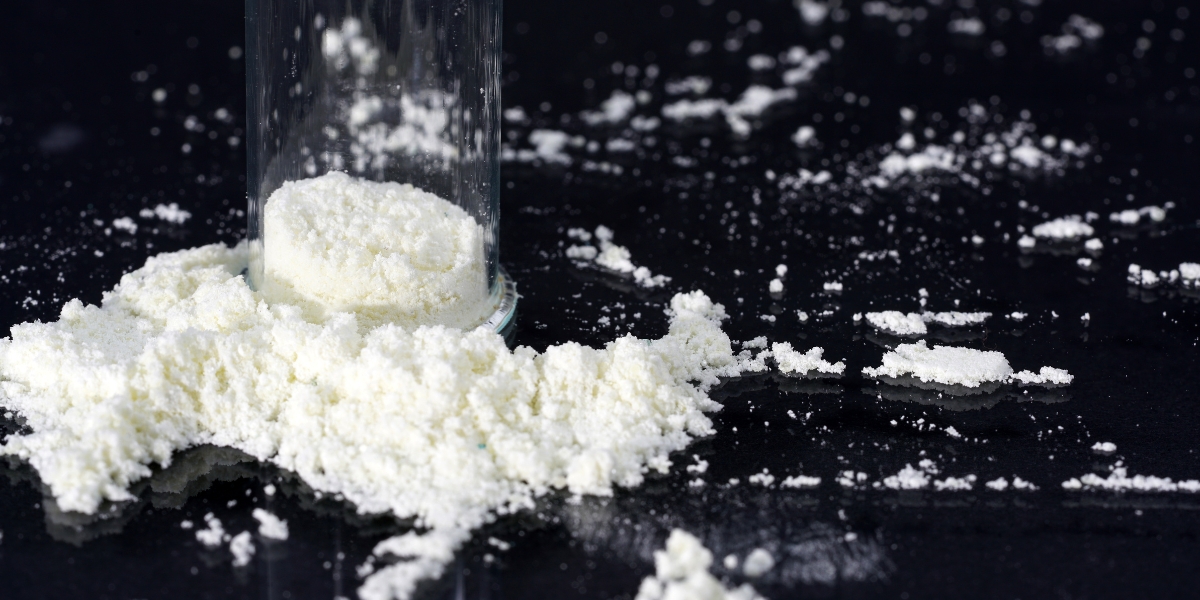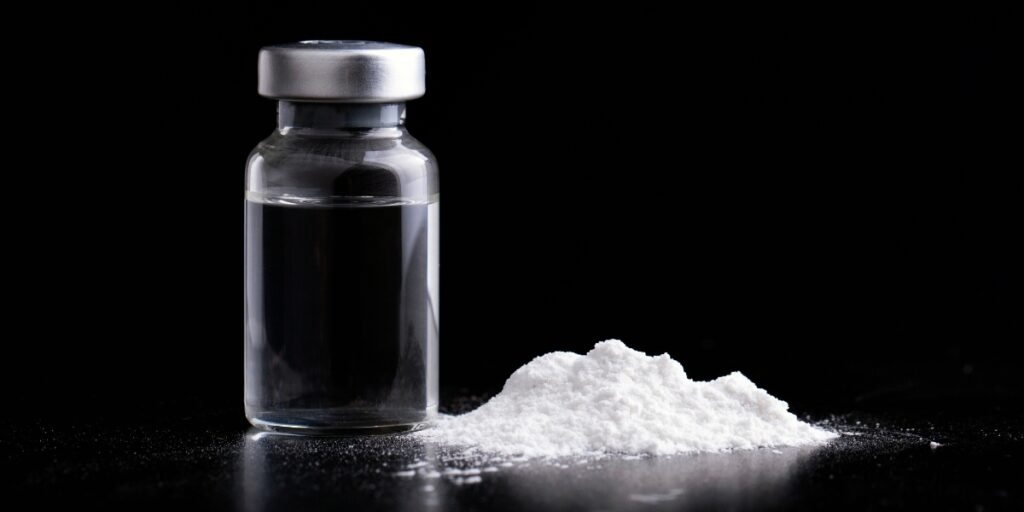What Is PCP?


In the United States, PCP is a schedule II illicit drug with mental and physical effects that escalate with repeated use. People smoke, snort, swallow, or inject PCP. Despite its illegal status, PCP is gaining popularity as a recreational drug among users.
What Is PCP or Phencyclidine?
PCP, short for phencyclidine, is a mind-altering, hallucinogenic, illegal drug. Initially, researchers tested PCP as a pain killer in medical settings; however, it quickly became apparent that PCP is addictive and dangerous, with no health benefits.
PCP Street Names
Because PCP has been around as an illegal drug for over 50 years, it has gained a variety of street names. Some nicknames for PCP refer to its appearance; others refer to its effects.
Street names for PCP include:
- Angel dust
- Rocket fuel
- Embalming fluid
- Animal tranquilizer
- Ozone
- Magic dust
- Tranq
- Sherman
- Black dust
According to the Department of Justice, people commonly mix PCP with marijuana or plant materials like mint, parsley, or oregano to hide the bitter taste when they smoke it. Some people dip their cigarettes in liquid PCP.
Common names for PCP mixed with weed or cigarettes include:
- Killer joints
- Supergrass
- Fly
- Wet
- Illy
- Dippers
What Does PCP Look Like?
PCP is most commonly a loose, crystal-like white or off-white colored powder. Some dealers will dye the powder or press it into pills and capsules. When PCP is liquid, it is clear or has a slight yellow tint.

PCP Effects
Primarily PCP is a painkiller and hallucinogen; however, there’s a wide variety of side effects PCP users will experience based on their physical makeup, tolerance, and how many doses of PCP they take. PCP works throughout the central nervous system and interacts with several chemicals in the brain to produce physical and mental effects. PCP is never harmless, and many first-time users have experienced psychotic breaks, seizures, comas, and death.
Depending on the method of ingestion, it takes between five minutes to two hours for PCP effects to kick in. Injecting, smoking, or snorting PCP causes quicker results, whereas swallowing tablets or mixing PCP with other edibles takes longer.
The effects of PCP include:
- A rush of euphoria
- A sense of heightened clarity and focus
- Disassociation
- Perceived super strength
- Speaking very quickly
- Slurred speech
- Dizziness
- Staring blankly or with a fixed gaze
- Jerky eye movements
- Small or constricted pupils
- Rigid or unnatural movements
- Overheating
- Flushing
- Sweating
- Drastic changes in blood pressure
- Increased heart rate
- Coughing and wheezing
- Vomiting
- Paranoia
- Visual, auditory, and tactual hallucinations
- Aggressive behavior
- Violent outbursts
- Self-harm
- Seizures
People with co-occurring mental health disorders sometimes use drugs, including PCP, to self-medicate their symptoms. PCP is addictive, potent, and incredibly volatile, which can worsen symptoms and even cause long-term psychological damage. Long-term PCP use also takes an incredible physical toll on the body.
Long-term effects of PCP use include:
- Memory loss
- Speech difficulties
- Loss of coordination
- Weight loss
- Tooth decay
- Soft tissue sores
- Depression
- Anxiety
- Flashbacks
- Violent or suicidal thoughts and behaviors
- Ataxia
- Psychosis
- Organ damage
- Psychosis
- Seizures
- Withdrawal
- Protracted withdrawal
Even long-time PCP users who quit may experience long-term effects, including severe seizure disorders that can lead to comas or brain damage. The long-term damage may heal with time and proper medical care, but some will require lifelong attention and care.

Withdrawal Symptoms
PCP withdrawal symptoms can be as unpredictable as the high, depending on the person and the length and severity of the addiction. According to the National Institutes of Health (NIH), PCP withdrawal can begin as soon as a few hours after the last dose and tends to last longer than other hallucinogenics.
PCP withdrawal symptoms include:
- Drug cravings
- Extreme fatigue
- Muscle soreness and stiffness
- Irritability
- Twitching
- Headache
- Appetite changes
- Depression
- Anxiety
- Violent outbursts
- Memory loss
- Sleep disturbances
- Speech difficulties
- Diarrhea
- Paranoia
- Hallucinations
- Delayed reflexes
- Seizures
The physical effects of PCP withdrawal can be intense and dangerous, but the psychological effects can be equally hazardous without the proper attention and support. Before you attempt to quit taking PCP, you should seek medical advice; most medical professionals will recommend supervised medical detox. Seeking professional medical detox is the safest way to get through PCP withdrawal; medical professionals can help ease the physical and mental anguish until you are well enough to enter treatment.
Detox alone is not a sufficient or effective treatment for PCP addiction; people should immediately enter comprehensive, evidence-based treatment programs to treat all aspects of addiction.
PCP Addiction Treatment in Northridge, California
If you or a loved one is struggling with an addiction to PCP, White Oak Recovery Center can help.
At White Oak Recovery Center, we pride ourselves on our patient-centered approach to overcoming addiction. We offer onsite medical detox in a tranquil environment, ensuring your safety through withdrawal. Our professional team of addiction specialists collaborates with you to develop a treatment plan personalized to your unique needs and goals.
During your time in our private residential treatment center, through evidence-based treatments, behavioral therapies, and support groups, we work to address the roots of addiction and heal more than just the physical effects of PCP. You’ll learn new and healthy skills and tools to enjoy a life free from addiction and the ability to overcome any future challenges to your recovery.
Reach out to us today. A new life rooted in recovery is possible.

Am I covered for addiction treatment?
Your insurance may cover treatment. Call now for an entirely free and confidential assessment. Recovery starts with a phone call.

- “Phencyclidine (Street Names: PCP, Angel Dust, Supergrass, Boat, Tic Tac, Zoom, Shermans.)” Drug Enforcement Agency Diversion Control Division, Apr. 2020.
- “PCP Fast Facts.” National Drug Intelligence Center, Jan. 2006.
- Bey, Tareg, and Patel, Anar. “Phencyclidine Intoxication and Adverse Effects: A Clinical and Pharmacological Review of an Illicit Drug.” The California Journal of Emergency Medicine, Feb. 2007.
- Berger, Fred K. “Substance Use—Phencyclidine (PCP).” National Library of Medicine, May. 2020.
- Journey JD, Bentley TP. “Phencyclidine Toxicity.” National Library of Medicine, Apr. 2022.
- “Facts You Should Know About PCP.” Illinois Department of Human Services, May 2020.
Medical Disclaimer:







